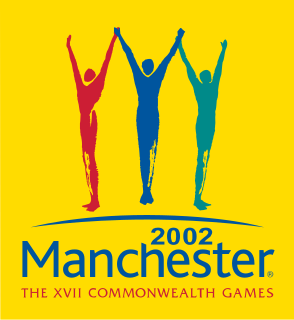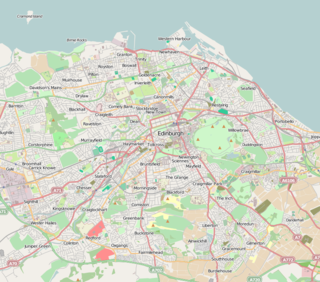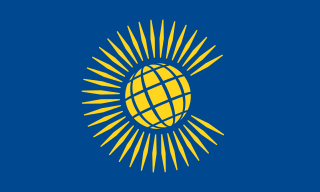
Netball is a ball sport played by two teams of seven players. Netball is most popular in many Commonwealth nations and according to the sport's international governing body, World Netball, it is played by more than 20 million people in more than 80 countries. Major domestic leagues in the sport include the Netball Superleague in Great Britain, Suncorp Super Netball in Australia and the ANZ Premiership in New Zealand. Four major competitions take place internationally: the quadrennial World Netball Championships, the Commonwealth Games, and the yearly Quad Series and Fast5 Series. In 1995, netball became an International Olympic Committee recognised sport, but it has not been played at the Olympics.

The Commonwealth Games, often referred to as the Friendly Games, is an international multi-sport event involving athletes from the Commonwealth of Nations. The event was first held in 1930, and, with the exception of 1942 and 1946, has taken place every four years since then. The Commonwealth Games were known as the British Empire Games from 1930 to 1950, the British Empire and Commonwealth Games from 1954 to 1966, and British Commonwealth Games from 1970 to 1974. Athletes with a disability are included as full members of their national teams, making the Commonwealth Games the first fully inclusive international multi-sport event. In 2018, the Games became the first global multi-sport event to feature an equal number of men's and women's medal events.

The 2002 Commonwealth Games, officially known as the XVII Commonwealth Games and commonly known as Manchester 2002 were held in Manchester, England, from 25 July to 4 August 2002. The 2002 Games were to be hosted in the United Kingdom to coincide with the Golden Jubilee of Elizabeth II, head of the Commonwealth, and Manchester was selected for the 2002 Games ahead of London. The 2002 Commonwealth Games was, prior to the 2012 Summer Olympics, the largest multi-sport event ever to be held in the UK, eclipsing the London 1948 Summer Olympics in numbers of teams and athletes participating. In terms of sports and events, the 2002 Games were the largest Commonwealth Games in history featuring 281 events across 17 sports.
In the Gleneagles Agreement, in 1977, Commonwealth Presidents and Prime Ministers agreed, as part of their support for the international campaign against apartheid, to discourage contact and competition between their sportsmen and sporting organisations, teams or individuals from South Africa. The agreement was unanimously approved by the Commonwealth of Nations at a meeting at Gleneagles, Perthshire, Scotland.
The 1980 Summer Paralympics, branded as the Olympics for the Disabled, were the sixth Summer Paralympic Games. They were held in Arnhem, Netherlands, from 21 to 30 June 1980.
Nationalism and sport are often intertwined, as sports provide a venue for symbolic competition between nations; sports competition often reflects national conflict, and in fact has often been a tool of diplomacy. The involvement of political goals in sport is seen by some as contrary to the fundamental ethos of sport being carried on for its own sake, for the enjoyment of its participants, but this involvement has been true throughout the history of sport.

Robert Hughes, Baron Hughes of Woodside is a British Labour Party politician and was also Chair of the British Anti-Apartheid Movement (AAM) from 1976 until it was dissolved in 1995 after the ending of apartheid in South Africa.

The 1986 Commonwealth Games were held in Edinburgh, Scotland, between 24 July and 2 August 1986. They were the second Games to be held in Edinburgh.

Scotland is one of only six countries to have competed in every Commonwealth Games since the first Empire Games in 1930. The others are Australia, Canada, England, New Zealand and Wales.

Meadowbank Stadium is a multi-purpose sports facility located in the Meadowbank area of Edinburgh, Scotland. Built on the site of the earlier New Meadowbank and Old Meadowbank sports venues, it was originally built to host the 1970 Commonwealth Games. It also hosted the Games in 1986, becoming the first venue to host the Games twice.

At the 1986 Commonwealth Games, the athletics events were held at the Meadowbank Stadium in Edinburgh, Scotland. A total of 41 events were contested, of which 23 by male and 18 by female athletes.

Bermuda competed in the first 1930 Games and has competed in a total of seventeen of the twenty Commonwealth Games to date. Bermuda took part in the 1986 Games opening ceremony and in the opening day of competition before the Bermuda Olympic Association decided to formally withdraw.
South Africa under apartheid was subjected to a variety of international boycotts, including on sporting contacts. There was some debate about whether the aim of the boycott was to oppose segregation in sport or apartheid in general, with the latter view prevailing in later decades.
Foreign relations of South Africa during apartheid refers to the foreign relations of South Africa between 1948 and the early 1990s. South Africa introduced apartheid in 1948, as a systematic extension of pre-existing racial discrimination laws. Initially the regime implemented an offensive foreign policy trying to consolidate South African hegemony over Southern Africa. These attempts had clearly failed by the late 1970s. As a result of its racism, occupation of Namibia and foreign interventionism in Angola, the country became increasingly isolated internationally.

The Commonwealth of Nations, generally known simply as the Commonwealth, is a political association of 54 member states, almost all of which are former territories of the British Empire. The chief institutions of the organisation are the Commonwealth Secretariat, which focuses on intergovernmental aspects, and the Commonwealth Foundation, which focuses on non-governmental relations amongst member states.
South Africa did not compete at Olympic Games from 1964 to 1988, as a part of the sporting boycott of South Africa during the apartheid era. The South African National Olympic Committee (NOC) was expelled from the International Olympic Committee (IOC) in 1970. In 1991, as part of the transition to multiracial equality, a new NOC was formed and admitted to the IOC, and the country competed at the 1992 Summer Olympics held in Barcelona.
Rugby union and apartheid had a complex and supportive relationship. From 1948 to 1994, international rugby relations with the country, and also the non-integrated nature of rugby within South Africa drew frequent controversy. South Africa remained a member of the International Rugby Board (IRB) throughout the apartheid era.
John M. Morbey is a former British and Bermudian long jumper, triple jumper and sprinter. He competed for Great Britain in the long jump at the 1964 Summer Olympics, finished eleventh. Representing Bermuda, he won a silver medal in the long jump at the 1966 British Empire and Commonwealth Games. Morbey also placed fifteenth in the triple jump and was eliminated in the heats of the 110 yards and 4 x 110 yards relay.
The anti-apartheid movement was a worldwide effort to end South Africa's apartheid regime and its oppressive policies of racial segregation. The movement emerged after the National Party government in South Africa won the election of 1948 and enforced a system of racial segregation through legislation. Opposition to the apartheid system came from both within South Africa and the international community, in particular Great Britain and the United States. The anti-apartheid movement consisted of a series of demonstrations, economic divestment, and boycotts against South Africa. In the United States, anti-apartheid efforts were initiated primarily by nongovernmental human rights organizations. On the other hand, state and federal governments were reluctant to support the call for sanctions against South Africa due to increasing cold war demands and profitable economic ties. The rift between public condemnation of apartheid and the U.S government's continued support of the South African government delayed efforts to negotiate a peaceful transfer to majority rule. Eventually, a congressional override of President Reagan's veto resulted in passage of the Comprehensive Anti-Apartheid Act in 1986. However, the extent to which the anti-apartheid movement contributed to the downfall of apartheid in 1994 remains under debate.










